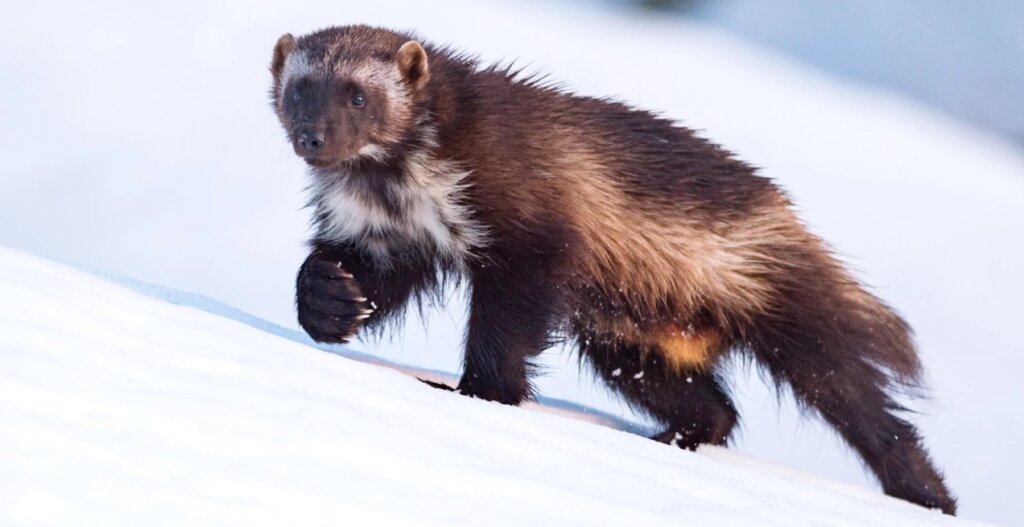As the climate crisis melts away their snowy mountain homes, North American wolverines have been officially listed as threatened under the Endangered Species Act and will gain long-anticipated federal protections, US officials revealed Wednesday.
Warming temperatures are rapidly reducing the mountain snowpack that wolverines need for food, breeding, and survival. Scientists have warned that the species may become endangered, and the US Fish and Wildlife Service has designated wolverines as threatened in the contiguous US.

Hugh Morrison, Pacific Regional Director of the Fish and Wildlife Service, stated, “The North American wolverine is in danger due to the current and increasing impacts of climate change and associated habitat degradation and fragmentation.” “This listing decision will help to stem the long-term impact and enhance the viability of wolverines in the contiguous United States, based on the best available science.”
By putting wolverines on the list, numerous environmental laws provide legal protections for the threatened species, halting further population declines. It also promotes increased scientific research and improved conservation activities to comprehend fragile species.
Wolverines’ habitat extends over large portions of North America, including the tundra and boreal forests of Alaska and Canada, as well as the Northern Rocky Mountains and North Cascades in the lower 48 states, where the populations are still mostly in good health.
However, many species adapted to the snow have become elusive in recent years.
Most recently, two wolverines in the Inyo National Forest and one in Yosemite National Park were among a rare trio of wolverines sighted in California’s Sierra Nevada Mountains last summer. Despite being listed as a threatened species under the California Endangered Species Act, scientists estimate that the last time the species was sighted in the area was between 2008 and 2018.
In 2018, federal scientists predicted that the wolverine population would plummet dramatically over the next few decades due to climate change, leading to a significant decline in spring snowfall. Higher temperatures may impact their capacity to maintain food supplies since they shorten the food’s shelf life and increase competition from robbers more suited to warmer regions, according to a different 2020 study.
For years, scientists and conservationists have been urging federal protections, and some environmental organizations, like the Center for Biological Diversity, have even filed lawsuits to meet their demands.
Under previous President Donald Trump, early efforts to safeguard the species were rejected in 2020, despite new science and mounting calls for federal protections. A federal judge mandated in 2022 that the Biden administration make a final determination regarding the idea.
Andrea Zaccardi, the legal director of the Center for Biological Diversity dedicated to carnivore conservation, emailed CNN, saying, “I’m thrilled that the Fish and Wildlife Service is finally following the science by granting wolverines the federal protections they need to survive and recover.” “I’m thrilled that wolverines are finally on the road to recovery; like so many other species, they waited far too long for federal protections.”
Separately, the US Fish and Wildlife Service is looking for public feedback on a temporary rule that would exempt situations in which legal trapping, research-related operations, or forest management practices aimed at lowering the danger of wildfires could unintentionally cause harm to the species.

